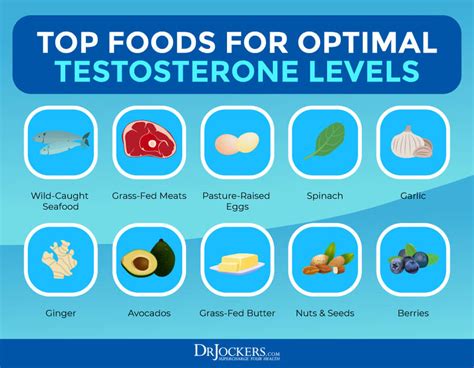How to naturally raise testosterone for peak performance and vitality?

Understanding Testosterone and Its Importance
Testosterone, often dubbed the primary male sex hormone, plays a pivotal role far beyond just sexual health. It’s crucial for maintaining energy levels, mood regulation, bone density, muscle mass, red blood cell production, and cognitive function. As men age, testosterone levels naturally decline, but various lifestyle factors can also contribute to lower levels, leading to symptoms like fatigue, reduced libido, difficulty building muscle, and mood swings. The good news is, many natural approaches can significantly help in optimizing your body’s testosterone production.

Dietary Foundations for Testosterone Production
Your diet is a powerful tool for hormonal balance. To naturally support testosterone, focus on nutrient-dense whole foods. Adequate intake of healthy fats is crucial, as cholesterol is a precursor to testosterone. Incorporate sources like avocados, nuts, olive oil, and fatty fish (salmon, mackerel). Protein is essential for muscle repair and growth, indirectly supporting T-levels, so include lean meats, poultry, eggs, and legumes. Carbohydrates, especially complex carbs like whole grains and vegetables, provide energy for workouts and prevent cortisol (stress hormone) spikes that can suppress testosterone.
Specific micronutrients are also key: Zinc, found in oysters, red meat, and pumpkin seeds, is vital for testosterone synthesis. Vitamin D, which acts as a steroid hormone in the body, is strongly linked to T-levels; sunlight exposure and foods like fortified dairy or fatty fish are good sources. Magnesium, found in leafy greens and nuts, also plays a role in free testosterone levels.
Exercise: The Testosterone Catalyst
Regular physical activity is one of the most effective natural testosterone boosters. However, not all exercise is created equal. High-intensity interval training (HIIT) and strength training are particularly potent. Lifting heavy weights, especially compound exercises like squats, deadlifts, bench presses, and rows, stimulates a significant testosterone release. Aim for 3-4 strength training sessions per week, focusing on progressive overload.
While endurance training is beneficial for cardiovascular health, excessive long-duration cardio without adequate recovery can sometimes elevate cortisol and potentially lower testosterone. Balance is key: incorporate a mix of strength training, HIIT, and moderate cardio, allowing for sufficient rest and recovery to prevent overtraining.

Optimize Sleep and Manage Stress
Sleep deprivation is a major disruptor of hormone production, including testosterone. Studies show that even a week of restricted sleep can significantly reduce T-levels. Aim for 7-9 hours of quality sleep per night. Establish a consistent sleep schedule, create a dark and cool sleep environment, and avoid screens before bed.
Chronic stress also has a detrimental effect. When stressed, your body produces more cortisol. High cortisol levels can directly suppress testosterone production. Incorporate stress-reduction techniques into your daily routine, such as meditation, deep breathing exercises, yoga, spending time in nature, or engaging in hobbies you enjoy. Effectively managing stress is crucial for maintaining a healthy hormonal balance.

Lifestyle Choices and Targeted Supplements
Beyond diet, exercise, and sleep, other lifestyle factors impact testosterone. Limiting alcohol intake, especially excessive consumption, is important as alcohol can interfere with T-production. Maintaining a healthy body weight is also critical; obesity is strongly linked to lower testosterone levels. Reducing exposure to endocrine-disrupting chemicals found in plastics (BPA, phthalates) and some personal care products can also support hormonal health.
While a whole-food diet should be your primary focus, certain supplements might offer additional support, especially if you have deficiencies. These include Vitamin D3, Zinc, Magnesium, and sometimes herbal adaptogens like Ashwagandha, which has been shown to reduce stress and may improve testosterone levels in some individuals. Always consult with a healthcare professional before starting any new supplement regimen.

Conclusion: A Holistic Approach to Vitality
Naturally raising your testosterone levels for peak performance and vitality isn’t about quick fixes; it’s about adopting a holistic and sustainable lifestyle. By prioritizing a nutrient-rich diet, engaging in strategic exercise, optimizing sleep, effectively managing stress, and making conscious lifestyle choices, you can empower your body to produce and maintain healthy testosterone levels. This integrated approach not only supports hormonal balance but also contributes to improved energy, mood, physical strength, and overall well-being, paving the way for a more vibrant and fulfilling life.










